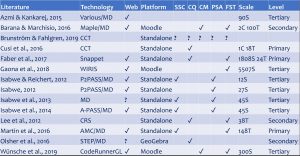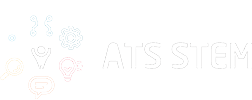
08 Feb Towards Comprehensive Technology-Supported Formative Assessment In ATS Stem Project
In the ATS STEM project, we aim to enhance the digital assessment of second-level students’ transversal STEM skills (Science, Technology, Engineering, and Mathematics). One of the problems that we work on is finding the right technological tools for that. Another general problem in formative assessment is when the number of learners is very high, and there is time pressure. Technology-enhanced learning can help us with this, especially in STEM. Thus, in our recent paper [1,2], we reviewed the state-of-the-art technical support for formative assessment in STEM education. We also categorized the papers based on a formative assessment model from the literature. We inferred that there is no existing holistic technology that covers all formative assessment principles. We also identified the combination of tools that can be used for teaching during the project.
The literature has identified five different classes of supporting activities that can be included in FA: sharing success criteria with learners (SSC), classroom questioning (CQ), comment-only marking (CM), peer- and self-assessment (PSA), and formative use of summative tests (FST). We analyzed the 14 papers we have identified in our literature search with respect to their technical foundations, the types of FA they support, and the empirical evidence they provide on their effects in the below Table.

MD: Mobile Device, CCT: Connected Classroom Technology, CRS: Classroom Response System S: Student, T: Teacher, C: Classroom
We reached two major arguments about the use of technology in the FA of math subjects. First, there is no existing technology that spans across all five classes of FA methods. Especially, PSA and CQ results are not combined in a single tool. While this is not surprising given the different foci of support (mainly: presence-based vs. online), the trend towards large-scale blended learning settings makes it worthwhile to explore the potential of a comprehensive support system. Providing such technological support in this field could, in particular, be useful for large-scale classroom settings, where individual formative feedback can hardly be provided by teachers themselves.
The review also showed that particular web-based tools are developed with different technologies, and most of the systems do not offer any integration into widely-used platforms such as Moodle. Therefore, standardization and integration can be a future problem.
[1] Aral, N.; Oppl, S. (2020). Towards comprehensive technology-supported formative assessment in math education – a literature review. In: HAL, Proceedings of the Tenth ERME Topic Conference (ETC 10) on Mathematics Education in the Digital Age (MEDA): 411-412, Online, Linz, Austria
[2] Aral, N.; Brachtl, S. (2020). Towards comprehensive technology-supported formative assessment in ATS STEM Project, Talk at TEAVET Final International Conference, Online, Vlore, Albania


